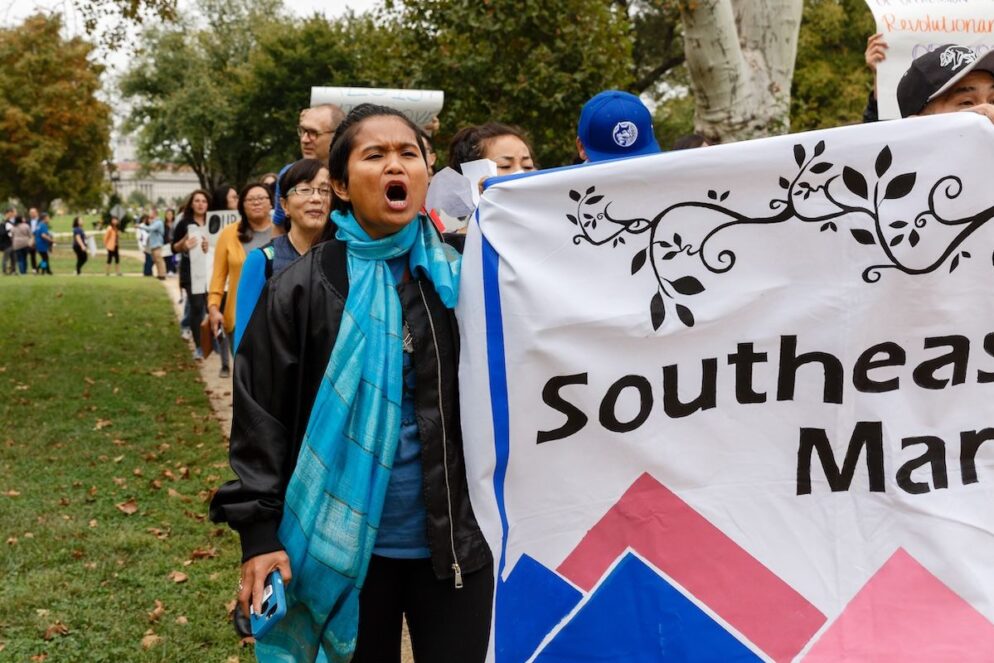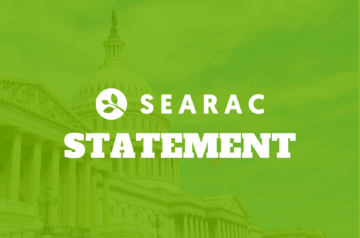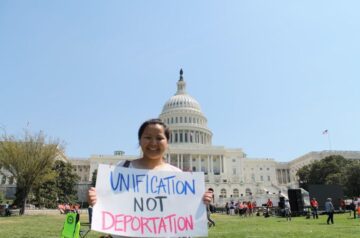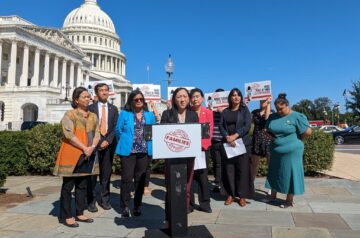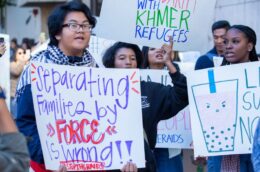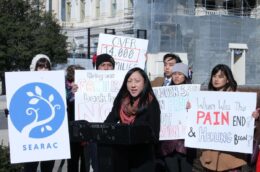In the aftermath of war and genocide in Cambodia, Laos, and Vietnam, many SEAAs were separated in their escape to safety. Our immigration system must ensure the timely and humane reunification of families.
Key resource:

How family-based immigration benefits Southeast Asian Americans: Standing up for our families and our rights — A memo that discusses the current backlog for immigration visas and the ramifications of ending family-based sponsorship.
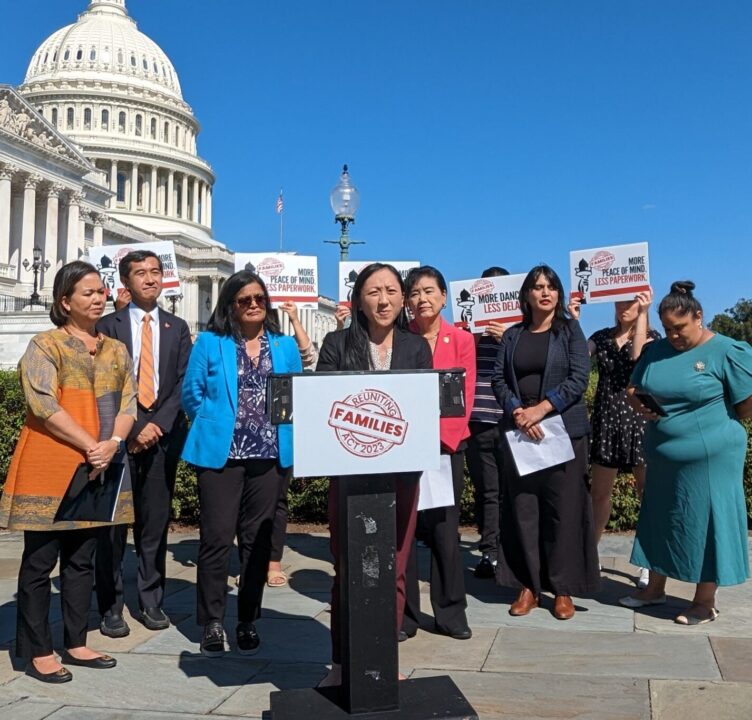
Featured story
Keep Our Families Whole – SEARAC Applauds Reintroduction of the Reuniting Families Act
The RFA would streamline the United States’ family immigration system – which has not been updated in over 20 years – to ensure the timely and humane reunification of immigrant and refugee families. The bill would eliminate bureaucratic red tape: clearing visa backlogs in the family and employment immigration systems, as well as providing an opportunity for relief for immigrants in deportation proceedings to remain with their families.
Learn more
“She’s all I think about. I just want my companion to be with me here, not just to help as a caregiver to my elderly father, but so we can also finally save some money and start a family, which is all I ever wanted. The emotional stress, the financial hardship, the physical toll it’s taken on both of us — it’s all really hard to manage.”
Solar installer, Minnesota
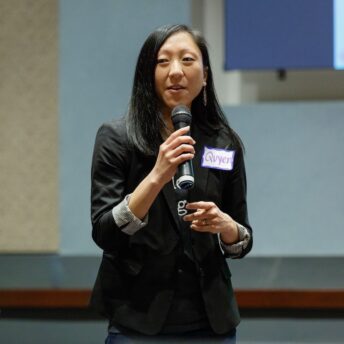
“The Reuniting Families Act would make our family reunification system more humane by ensuring that our families do not have to wait decades to be together and by providing greater opportunities for relief for those currently in deportation proceedings.”
Executive Director, SEARAC
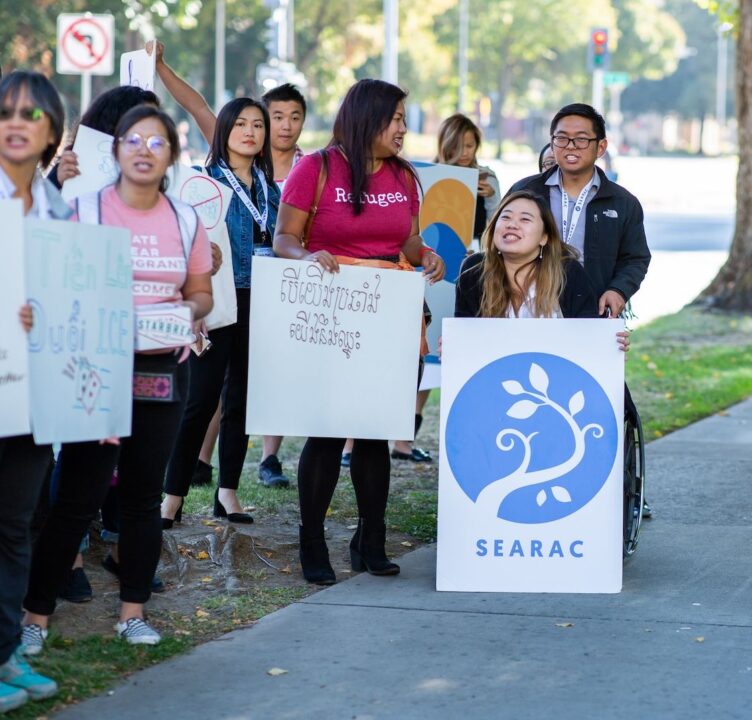
Subscribe to our newsletter for the latest updates on the SEARAC community, and to learn more about how you can get involved.
Today, SEARAC proudly launches Rising Up, a new report on the state of education for Southeast Asian American students. Key findings show that while progress is real, federal threats put hard-won gains at risk.
For 50 years, we have fought to be seen in schools; now is the time to protect that progress.
Read the report at the link in our bio.
Cover photo courtesy of ARISE, Ngan Nguyen, and her brother, Kelvin Khiem Nguyen.
Mar 3

SEARAC`s February newsletter is now live! Check out national and California policy updates from the SEARAC team: searac.org/news/2026-news-in-review/
Feb 27

Last night, President Trump lied to the American people. He spun an illusion of America where communities are safe from violence, healthcare costs are the lowest they’ve been, and children have all the supports they need to learn. Quyên Đinh, SEARAC Executive Director, shared, "Our communities are unveiling the truth of this Administration’s cruelty. Our strength has always come from collective action, from generations standing together and demanding better. Despite the President’s lies last night, we know that progress, justice, and truth will ultimately prevail."
Read the full statement at the link in our bio.
Feb 25

The Southeast Asian Deportation Relief Act #SEADRA will prevent deportations of Southeast Asian refugees, ensure access to work permits, and end ICE check ins. Southeast Asian Americans deserve safety, dignity, and a chance to thrive. Tell Congress to support #SEADRA and endorse it today: linktr.ee/searac.
Feb 24

With families at risk today, we choose action and hope. Southeast Asian Deportation Relief Act #SEADRA would protect Southeast Asian refugees and immigrants, keep families together, and restore due process. The time to pass SEADRA is now. Join us in standing with our communities against unjust detention and deportation and endorse SEADRA today: linktr.ee/searac.
Feb 23


